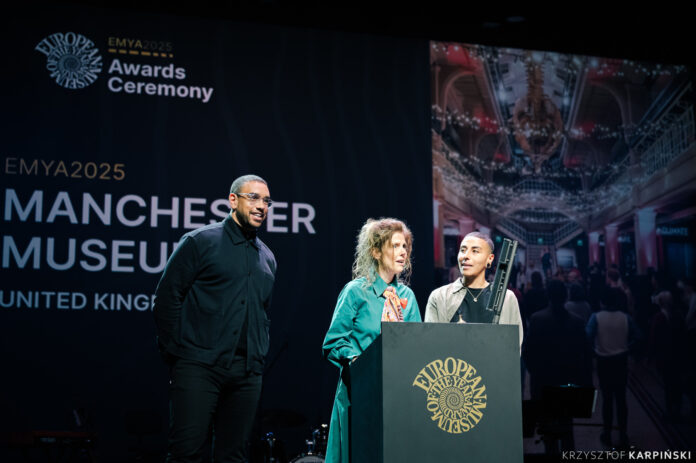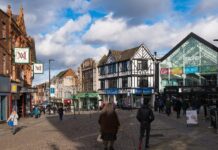Manchester Museum has been recognised as one of Europe’s leading museums after winning the European Museum of the Year Award (EMYA) 2025.
The annual prize is one of the most prestigious museum awards in the world and Manchester Museum, part of The University of Manchester, is the first university museum to receive it, earning recognition for the way it balances globally-significant academic research with community engagement and social responsibility.
Judges praised how Manchester Museum has ‘reimagined its mission, acknowledging and addressing its complex history by redefining the role of its collections and public programmes.’ Its approach to co-curation was cited as part of this, working with local and diasporic communities to bring new perspectives to collections and challenge traditional narratives. The South Asia Gallery, a British Museum partnership, is a key element of this, co-curated with 30 inspiring community members from across the South Asian diaspora, who were able to tell their own stories in their own words and on their own terms.
Manchester Museum was also praised for ‘thoughtful, informed, and impactful community engagement, creating a truly inclusive space where all individuals, regardless of identity or background, can see themselves reflected and represented.’ The Manchester Museum Celebrates programme of events, created in collaboration with charities, faith organisations and community activists, aims to build understanding between cultures, bringing people together to celebrate culturally-significant events such as Lunar New Year, Vaisakhi, Africa Day and Iftar.
Meanwhile, the Museum’s Top Floor has been transformed into a social and environmental justice hub, creating a space for collaboration with charities and non-profit organisations helping Greater Manchester’s communities take action on the issues they care about. It acts as the headquarters for Pinc College, a specialist creative education college for neurodivergent young people, aged 16 to 24.
Previous winners include Sámi Museum Siida in Northern Lapland, Finland, Naturalis Biodiversity Center in Leiden, Netherlands, Rijksmuseum Amsterdam, The Design Museum in London, and Guggenheim Museum Bilbao.







